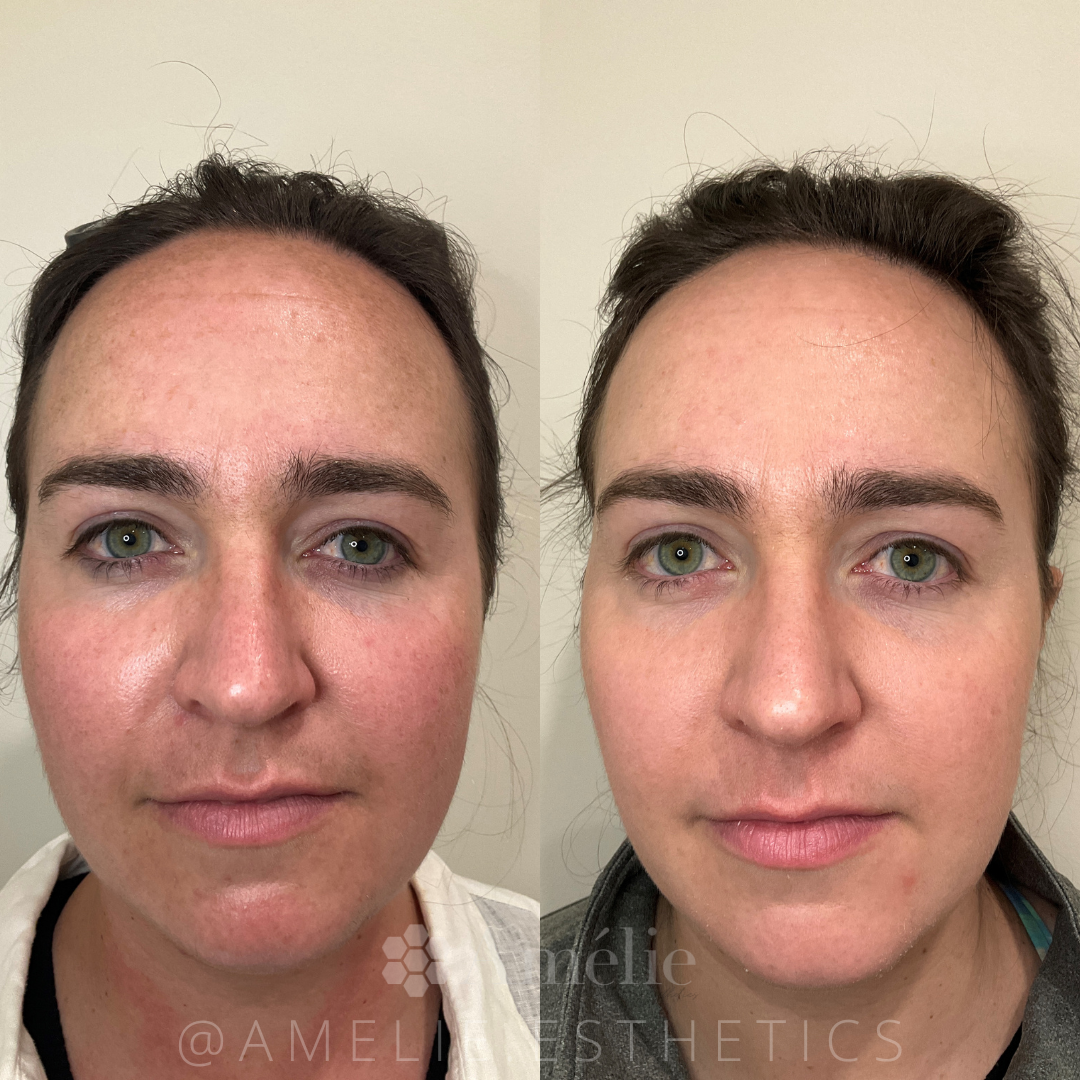Melasma is a common skin condition that leads to dark patches and spots, typically on the face. These areas become darker than your natural skin tone, and the condition is primarily caused by two factors: radiation and hormones. Radiation can come from ultraviolet (UV), visible light, or infrared (heat) light! Hormonal changes due to pregnancy or birth control can also trigger melasma. Sun exposure, specifically UV and infrared radiation, can make the melasma worse. Fortunately, if you’re diagnosed with melasma, it is treatable with a personalized treatment plan that includes both skincare products and a personalized treatment plan with your certified advanced esthetician at Amélie!
Dealing with melasma can be a real challenge, even when you stick to your treatment plan diligently. While melasma may never fully disappear, the good news is that it can be significantly faded within the epidermal layers of your skin through various treatments. Researchers are constantly studying this condition, and their efforts have led to several exciting advances in treatment options. So, while it might be a stubborn issue, there’s hope for noticeable improvement with the right approach!

To improve your results, your provider may add one or more of the following to your treatment plan:
- Chemical peel: During this procedure, your dermatologist applies a chemical solution to the melasma. This can help remove excess pigment.
- Microneedling: This minimally invasive procedure creates microscopic injuries in your skin. As the skin heals, it tends to have a more even skin tone and texture.
- Platelet-Rich Fibrin: This procedure involves taking a small amount of your blood, placing the blood into a machine that separates the blood into layers, and then injecting the layer of blood known as plasma into the skin by microneedling. This can help even your skin tone and texture.
Results take time! When you follow your treatment plan, it usually takes between 3 to 12 months to see results. It may take longer if you’ve had melasma for a long time. Because melasma never fully goes away you will always need to maintain your skin with a strict skin care regimen, using SPF daily and maintaining recommended treatments as needed for melasma. If you think you may have melasma, come see us for a complimentary skin consultation so we determine the best treatment plan for you!







